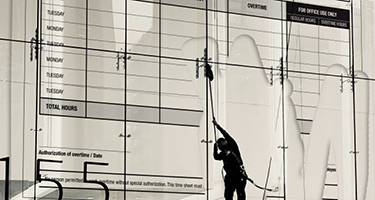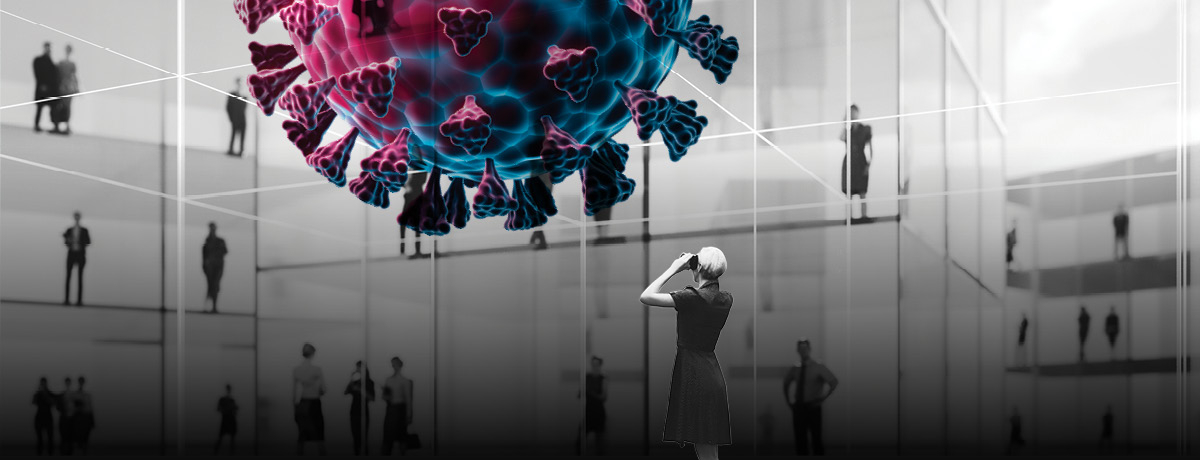This article was originally published in our 2021 Employment Law Issue.
The fundamentals of workplace harassment have not changed much in recent years. It’s still illegal and a form of discrimination under Title VII of the Civil Rights Act, the Age Discrimination in Employment Act, the Americans with Disabilities Act, and other federal and state laws. Several states offer even broader protections.
Employers, supervisors, and coworkers can’t harass you based on your race, color, religion, sex, pregnancy, national origin, disability, genetic information, or age (if you’re over 40). President Biden recently ordered federal agencies to enforce laws concerning sexual orientation and gender identity as well.
Determining when poor conduct has risen to the level of harassment is the same, too. Behavior is illegal when a) enduring it becomes a condition of continued employment, or b) it is so severe or pervasive that it creates an intimidating, hostile, or abusive work environment.
Harassment can take many forms: offensive or derogatory jokes, slurs, name calling, threats of physical violence, physical assault, ridicule, mocking, insults, intimidation, expressions of disgust and intolerance, displays of offensive objects or images or discriminatory symbols, and interference with work duties.
Sexual Harassment Was Changing Before the Pandemic
Harassment laws aren’t progressing because of COVID-19. They’ve been evolving since 2017, when the #MeToo movement emerged into our collective social consciousness. (Activist and community organizer Tarana Burkes tarted the MeToo movement in 2006.) Since 2017, at least 15 states have passed new sexual-harassment laws or altered existing ones. Many mandate training, provide for a less strict standard to prove harassment, and do away with nondisclosure agreements.
Businesses have evolved, too. Steven Andrew Smith, a partner at Nichols Kaster in Minneapolis, has observed significant changes ever since NBC fired Today host Matt Lauer in November 2017. Many companies appear more willing to undertake thorough investigations immediately and rid themselves of bad actors.
Harassment can take many forms.”
Virtual Harassment Is Possible
Many people hoped a distributed workforce would reduce instances of sexual and other forms of harassment— and in some cases, it may have. Anecdotally, Smith noticed Nichols Kaster received fewer inquiries for representation regarding sexual harassment during the pandemic, perhaps because less in-person work reduced occurrences of physical sexual assault.
Many harassment claims, though, cite the creation of a toxic workplace, not physical conduct. Joni Hersch, a professor of law and economics at Vanderbilt University Law School, has argued that a virtual environment might lend itself to harassment. A perpetrator can send sexually suggestive or hostile jokes, inappropriate photos, videos, or memes, or instantly share putatively private content with others.
Virtual harassment can be subtle, too. Forbes recently told the story of one woman whose boss required her to show her entire body on camera during video meetings, not just her face. More egregious situations have occurred as well, such as individuals masturbating during virtual work calls.
Ariel Weindling, CEO of NotMe Solutions, an app for repor ting workplace misconduct, told Forbes that virtual harassment may be less common because videos and messages can be easily recorded and supervised on work platforms. However, not all companies require employees to record video calls, and even if they do, subtle forms of harassment can persist. It’s also possible for employees to torment others via personal platforms both during and after working hours.
Food-Service Workers Face the Worst
Not all employees were able to work from home during the pandemic, of course, and those who could tended to be in industries with lower rates of sexual harassment to begin with. Those in sectors with high rates of harassment, such as food service, have had to show up every day.
According to a 2021 survey by the advocacy group One Fair Wage and Social Science Research Solutions, 71 percent of female restaurant workers have been sexually harassed at least once during their time in the industry. Customers are often the perpetrators, but not always: 44 percent of women reported harassment by someone in a management or ownership role. Many women reported masks were used as a tool of harassment during the pandemic: Male customers would demand female workers remove their masks. The implication—or stated intention—was that the customer wanted to know what the woman looked like before tipping her.
Find someone internally who can be a champion for you and help decide the best way to bring your claim forward.”
Prejudice May Be on the Rise
There are indications that racism, antisemitism, and LGBTQ+ discrimination are getting worse. The FBI’s 2019 Hate Crime Statistics Report showed the highest number of such crimes since 2008. The largest category of incidents were anti-black crimes, which coincides with Smith’s experience—he noticed his firm received more calls for representation with regard to racism in the workplace in 2020, he says.
The FBI reported an overall increase in religious hate crimes, with the largest category involving 953 antisemitic incidents. Hate crimes based on gender, gender identity, and sexual orientation also rose between 2017 and 2019, with increases in incidents against women, transgender individuals, and gender-nonconforming people.
These figures don’t inherently translate to instances of workplace harassment, but they are a risk factor. Hateful sentiments can arise at work and create a hostile environment.
Fewer Reports May Indicate Fear
Fewer harassment complaints don’t necessarily indicate less harassment is taking place. Employees who may have come forward before 2020 may not be able to afford to now. They might be afraid of losing their job or other retaliation when they’ve lost a loved one and their income, a member of their household is out of work, or they have COVID-related medical bills.
How to Handle Workplace Harassment
Whether you’re working remotely, returning to the office, or never left the frontlines in the first place, you must figure out what to do if you’re being harassed. To begin with, try to document what has been said or done, by whom, and when. If the harassment is virtual, ask for permission to record your work calls. You’ll have to abide by state laws and, in some cases, company policy. If you receive unwanted and inappropriate messages on work or personal platforms, save or screenshot them.
Review your state’s laws on workplace harassment. If what you’re experiencing is sexual in nature, your state’s laws might well have changed in recent years. You’ll also want to review your workplace policies and complaint procedure, if there is one.
Next, you’ll want to consider your options for coming forward. It’s helpful to consult a labor-and-employment attorney who works with employees. It might also be in your best interest to file a state-level or Equal Employment Opportunity Commission claim. It depends on the basis for the harassment and whether federal or state law offers broader protection. In either case, know that there will be a time limit to file your complaint.
Another option is to go through your employer’s voluntary resolution method. Whether that ’s in your best interest depends on your employer’s policies, which a lawyer would assess. If your employer forces arbitration and nondisclosure agreements, you might want to consider other options.
Most importantly, don’t keep what’s going on to yourself. “Talk to people about it,” Nichols Kaster’s Smith says. “Get together with your best people, whether that ’s your spouse or your best friend or your best coworker. Find someone internally who can be a champion for you and help decide the best way to bring your claim forward.”
Victoria E. Langley is a legal content writer living in the Pacific Northwest. She holds a B. A . in Philosophy from Northern Illinois University and a J.D. from the UIC John Marshall Law School.
































